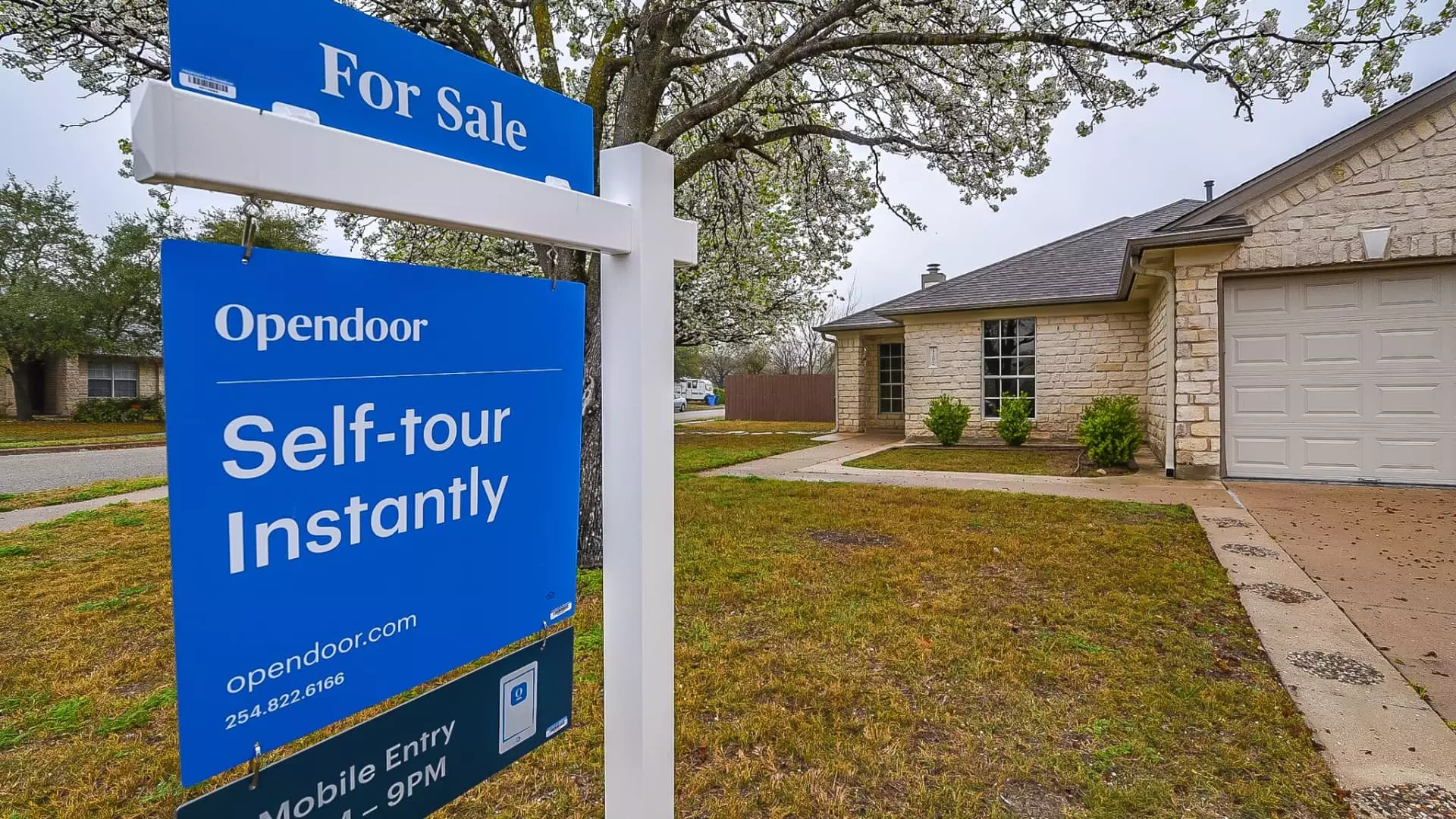Opendoor’s recent stock rally has been nothing short of a volatile rollercoaster, oscillating between hope and disillusionment. Once mired in near-obliteration, its shares surged nearly fivefold in a matter of weeks—an impressive feat, but one that begs scrutiny. The narrative spun by CEO Carrie Wheeler about investor enthusiasm seems more like a mirage than a sign of sustainable growth. The company’s bounce back, fueled partly by hedge fund backing and speculative fervor, appears disconnected from its fundamental financial health. Market optimism must be balanced with the sobering truth: Opendoor remains scarred by years of declining revenue, shrinking market share, and the enduring shadows of a housing market in distress.
More telling than the speeches and celebratory tones is the stark reality that the company has come perilously close to losing its Nasdaq listing due to dismal share prices. The proposed reverse split, which could have inflated share value artificially to maintain stability, was ultimately scrapped. This decision hints at a fragile foundation—one that is still desperately clinging to a thin veneer of viability. The recent rally appears driven more by speculative trading and bold predictions rather than tangible business reformation. This disconnect raises a critical question: Is this rebound a genuine resurgence or merely an illusion crafted to placate short-term investors?
The Fragility of a Business on Shaky Grounds
At the core of Opendoor’s struggles lies its heavy reliance on the volatile housing market. The company, innovatively described as a tech-driven homebuyer and seller, flourished during the pandemic-induced real estate boom but has since been struck by the harsh winds of rising interest rates. As mortgage costs climbed, demand for homes plummeted, decimating Opendoor’s revenues. What once looked like a disruptive model now appears increasingly unsustainable under the pressures of a sluggish market and waning consumer confidence.
Even its modest recent gains, such as a slight uptick in revenue and an improved net loss figure, fail to inspire confidence. The projections for the upcoming quarter suggest further decline; revenue might fall as much as 36%. The company has responded by scaling back its acquisitions and marketing efforts, a clear sign that management recognizes the depth of the problem but perhaps lacks viable solutions. Declining home purchases and record new listings paint a bleak picture, and the hope that shifting into a referral-based model might provide salvation seems optimistic at best. While Wheeler emphasizes this strategic change as pivotal, it remains to be seen whether a less capital-intensive approach can compensate for the shrinking real estate market and declining demand.
Hedge Funds and Hype: A Double-Edged Sword
The recent rally was largely driven by speculative investment—most notably hedge fund manager Eric Jackson’s bullish stance. Jackson’s confidence in Opendoor reaching $82 per share by returning to growth and market share expansion appears overly optimistic amid the current economic headwinds. His optimism highlights a crucial flaw in the current hype cycle: high-profile investors can sometimes overshadow the underlying weak fundamentals, creating a paradoxical situation where excitement outstrips reality.
The problem with such speculation is that it often inflates stock prices temporarily, only for the market to realize the disparity between valuation and actual business health. The rapid rise in capital markets’ interest does not automatically translate into an underlying business renaissance. The fact that Opendoor had to cancel a previously proposed reverse split and continues to report losses indicates that the company remains deeply troubled. Market belief in potential turnaround stories can be seductive but must be grounded in concrete operational improvements, something that is still sorely lacking in Opendoor’s case.
A Reckoning for Future Growth
Fundamentally, Opendoor’s future hinges on whether it can adapt to an increasingly challenging housing environment and convince skeptical investors of its viability. The company’s attempted pivot toward a referral system and reduced capital expenditure suggests a recognition of its vulnerabilities. However, such strategic shifts are not guarantees of success—they’re callings for a gamble on the market’s resilience and the company’s operational discipline.
In the end, the question remains whether Opendoor’s recent resurgence is a fleeting phenomenon driven by market speculation or the early sign of genuine recovery. Given the persistent headwinds of rising interest rates, declining demand, and ongoing losses, it seems more prudent to approach the optimism with cautious skepticism. Investors must recognize that rebuilding trust and profitability in this environment is a marathon, not a sprint—something that Opendoor’s current trajectory has yet to convincingly demonstrate.
Instead of seeing this rally as proof of emerging strength, it should serve as a stark reminder that in the world of business, short-term spikes are often followed by long, hard lessons. The real test will be whether Opendoor can translate fleeting investor enthusiasm into tangible, sustainable growth—something that, at present, looks increasingly unlikely.

